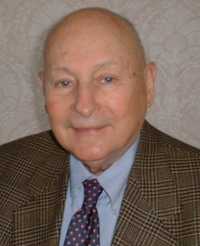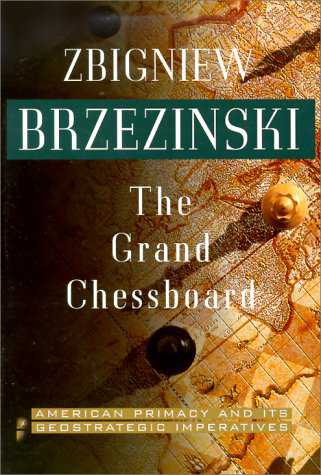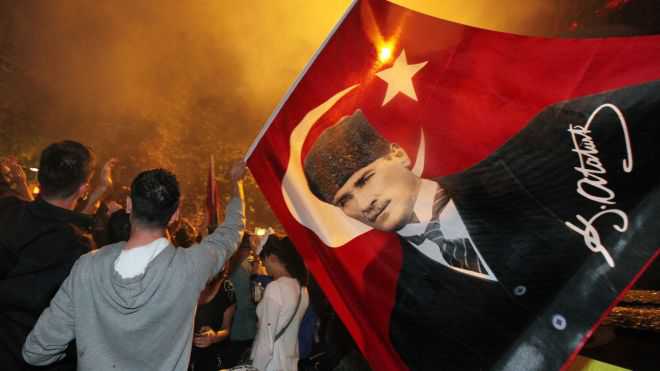WRITTEN BY SAM BLUMENFELD
 There can be no doubt that Barack Hussein Obama is a deeply committed socialist intent on destroying the American capitalist system and our Constitutional form of government. Anyone who reads Stanley Kurtz’s new book, Radical-in-Chief, will come away with that conviction. Kurtz writes:
There can be no doubt that Barack Hussein Obama is a deeply committed socialist intent on destroying the American capitalist system and our Constitutional form of government. Anyone who reads Stanley Kurtz’s new book, Radical-in-Chief, will come away with that conviction. Kurtz writes:
From his teenage years under the mentorship of Frank Marshall Davis, to his socialist days at Occidental College, to his life-transforming encounters at New York’s Socialist Scholars Conferences, to his immersion in the stealthily socialist community-organizer networks of Chicago, Barack Obama has lived in a thoroughly socialist world….
At every turn, Obama has disguised his socialist past, sometimes through grievous sins of omission, sometimes through opaque and misleading pseudo-confessions, and at other times through outright lies. To say that Obama has lied about his past doesn’t quite do justice to what’s been going on…. By hiding his core political convictions, the president has systematically deceived the American people.
Indeed, it was at the New York Socialist Conferences that Obama learned why he had to become a skilled liar. He learned in New York that if socialists were ever to achieve high elective office, they would have to become stealth socialists, never admitting to being socialists while promoting a socialist agenda. Since most Americans don’t know the difference between liberalism, progressivism and socialism, it would be quite easy to deceive the electorate. And even after it became known that Obama had connections with such notorious radicals as Bill Ayers and Jeremiah Wright, he was able to deceive enough people so that he could ride to the presidency on a white horse in the name of “change.”
It is interesting that after graduating from Columbia University, Obama first got a job in a private firm that he hated, and then went to Chicago to become a community organizer, a form of radical activism invented by Saul Alinsky. The purpose of a community organizer is to turn Americans into mobs that can be used by stealth socialists to intimidate opponents to the socialist agenda.
Kurtz writes: “We’ve seen that the favorite strategies of community organizers are designed to push the country into socialism well before the public can figure out what’s happened. Stealth-socialist community organizers habitually disguise their long-term goals.”
In Wisconsin we have witnessed how the strategy works. Unionized teachers and government workers are mobilized by community organizers to fill the state house with screaming mobs. The teachers bring their students with them. Apparently the students have not been taught anything about constitutional government and believe that mobs are the appropriate way to intimidate a conservative governor.
But why may Obama be America’s Lenin? I believe that his commitment to socialism is so deep and strong that he wants to go down in history as the greatest single socialist in the pantheon of great socialists, along with Marx, Engels, and Lenin, Lenin was able to impose communism on an economically weak, politically backward nation, while Obama’s challenge has been to take the greatest capitalist nation on earth and transform it into a socialist society. What an achievement that would be in socialist eyes!
In other words, I believe that Obama considers himself to be clever enough to do the impossible: destroy American capitalism and lead this nation into a socialist world government.
As a stealth socialist, Obama has lied his way to the exalted office of the presidency of the United States. And apparently he is also involved in a deception concerning his eligibility to be president under our Constitutional requirements. Why else would he refuse to make public his actual birth certificate and important documents pertaining to his education? It would be so simple to end the controversy over his birth by letting the public read his birth certificate. But since deception is second nature to him, he has no trouble doing what no other political leader has done: hide the actual facts of his birth.
What emerges from Obama’s autobiography, Dreams from My Father, is a very strong ego and great pride in his African-Muslim heritage. He explains to a fellow student at Occidental College that his name Barack means blessed in Arabic and that his grandfather was a Muslim. His father, however, was an atheist socialist
That is why the socialist-Islamic connection is no problem for Obama. He is comfortable among Muslims and socialists. To him conservative Americans are the enemy.
Once you understand that Obama believes that he will go down in history as the world’s greatest socialist, then you can begin to understand his constantly shifting strategy. He is the only socialist who has become President of the United States. But like all socialists, he realizes that he will face great opposition from the capitalist enemy. And so Obama was prepared for the reaction to his socialist agenda in the November elections. But Lenin was able to beat the opposition to communist rule by defeating his opponents in a civil war.
Mobs will be Obama’s chief means of defeating his opponents. The Democratic Party has been transformed into a socialist battering ram, aiding and abetting the community organizers in their job of forming mobs. Unionized government employees can be easily mobilized by the left to make conservative state governments ungovernable. Dumbed down teachers and their dumbed down students are easily persuaded that mob rule is a legitimate and democratic way to prevent conservatives from legislating a conservative agenda.
As for destroying American capitalism, it’s quite easy to do: let the government’s debt reach the point where America must default on its interest payments, and the game will be over. The dollar will no longer be used as the world’s reserve currency, and we will be reduced to economic chaos which will lead to riots and violence. Martial law will permit the socialists to impose brute force over the nation and keep Obama in power as dictator.
The fact that Obama is doing nothing to reduce the federal debt indicates that he is counting on the debt undoing the American system. Bill Costello writes in the February 2011 issue of China Today:
“America’s federal debt is almost US$14 trillion and shooting up. Yet the government is still spending more money than it collects in taxes. In its 2010 budget year, it spent approximately US$1.3 trillion more than it collected, creating the second largest deficit in American history.”
John Fund recently wrote in the Wall Street Journal, “Obama’s budget actually increases our crushing deficit.”
But the Radical-in-Chief has threatened to veto the Republican’s very modest $61 billion cut in his $3.73 trillion budget, cuts which Democrats have called “draconian.” The fact that Obama is doing all in his power to increase the federal debt indicates his adherence to his basic socialist strategy aimed at destroying the American capitalist system.
But it is unlikely that he will succeed. Even though the federal government may default on its debts and go bankrupt, the American economy is simply too large and diverse to collapse entirely. As for widespread mob rule and riots, the American people are well armed and not about to let anarchy and chaos destroy the country. But you can be sure that Obama will not stop trying.
Dr. Samuel L. Blumenfeld is the author of nine books on education including NEA: Trojan Horse in American Education, The Whole Language/OBE Fraud, and The Victims of Dick & Jane and Other Essays. Of NEA: Trojan Horse in American Education, former U.S. Senator Steve Symms of Idaho said: “Every so often a book is written that can change the thinking of a nation. This book is one of them.
” Mr.Blumenfeld’s columns have appeared in such diverse publications as Reason, The New American, The Chalcedon Report, Insight, Education Digest, Vital Speeches, and WorldNetDaily
www.thenewamerican.com, 23 FEBRUARY 2011


 “very pointed” .. [and] .. “clearly calculated in terms of its potential impact on disrupting the American-Turkish relationship.”
“very pointed” .. [and] .. “clearly calculated in terms of its potential impact on disrupting the American-Turkish relationship.”

